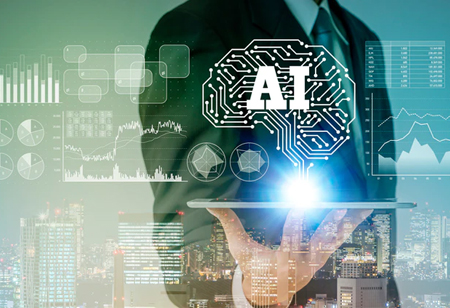AI in material handling encompasses a range of technologies and applications, including machine learning, computer vision, robotics, and natural language processing. These technologies work in tandem to automate and optimize tasks such as inventory management, order fulfillment, warehouse operations, and transportation logistics.
Machine Learning Algorithms: Machine learning algorithms analyze vast amounts of data to identify patterns, predict outcomes, and make data-driven decisions. In material handling, these algorithms are used for demand forecasting, route optimization, and predictive maintenance. LD Systems leverages machine learning algorithms to optimize inventory levels and reduce stockouts for its clients.
Computer Vision: Computer vision systems use cameras and sensors to interpret and analyze visual information. In material handling, computer vision is used for object recognition, quality inspection, and automated picking and packing.
Robotics: Robotics technologies, such as autonomous mobile robots (AMRs) and robotic arms, play a key role in automating material handling tasks. AMRs can navigate warehouse environments, transport goods, and collaborate with human workers to optimize order fulfillment processes.
Natural Language Processing (NLP): NLP enables machines to understand and interpret human language. In material handling, NLP is used for voice-controlled picking systems, chatbots for customer support, and automated data analysis.
Benefits of AI for Material Handling:
The integration of AI technologies offers several benefits to customers across industries:
Improved Efficiency: AI optimizes material handling processes by reducing manual interventions, streamlining workflows, and eliminating bottlenecks.
Enhanced Accuracy: AI systems offer high levels of accuracy and precision in tasks such as inventory management and order picking. Computer vision systems identify and inspect products with greater accuracy than human operators, reducing errors and improving product quality.
Cost Savings: By automating repetitive tasks and optimizing resource allocation, AI solutions reduce labor costs and operational expenses. Predictive maintenance algorithms prevent equipment failures and costly downtime, extending machinery lifespan and reducing maintenance costs.
Real-time Decision Making: AI systems provide real-time insights and analytics, enabling companies to make data-driven decisions quickly. AI-powered inventory management systems track inventory levels in real-time, preventing stockouts and improving customer satisfaction.
Scalability and Adaptability: AI technologies are scalable and adaptable to changing business needs and market conditions. Customized AI solutions meet specific requirements, whether scaling up operations during peak seasons or adapting to new product lines and customer demands.
Enhanced Safety: AI-powered robots and automated systems improve workplace safety by handling hazardous tasks and reducing the risk of injuries to human workers. Collaborative robots (cobots) enhance productivity and safety in material handling environments.
AI and the Role of a Material Handling Systems Integrator:
System, Integrators plays a crucial role in the successful implementation and utilization of AI in material handling. They leverage expertise in AI technologies, robotics, software development, and engineering to design and deploy customized solutions for their customers.
Assessment and Consultation: An integrator assesses customers’ infrastructure, processes, and goals to identify areas where AI can add value. They provide expert consultation on feasibility, ROI, and implementation roadmap for AI solutions.
Customized Solutions: System Integrators develops tailored AI solutions aligned with customers’ unique requirements and business objectives. This involves integrating AI-powered robotics, software systems, sensors, and IoT devices into existing workflows.
Integration and Deployment: Material Handling System Integrators manage end-to-end integration and deployment of AI systems, ensuring seamless interoperability and minimal disruption. They conduct thorough testing, training, and optimization to maximize AI performance.
Continuous Support and Maintenance: Integrators offer ongoing support, monitoring, and maintenance services to ensure reliability, scalability, and security of AI systems. They proactively identify and address issues, perform software updates, and provide user training.
Performance Monitoring and Optimization: System Integrators monitor AI system performance using data analytics and KPIs to track metrics like efficiency, accuracy, uptime, and cost savings. They optimize AI algorithms and workflows for maximum value delivery.
In Conclusion: The integration of AI technologies has revolutionized material handling operations, offering a myriad of benefits such as improved efficiency, enhanced accuracy, cost savings, real-time decision-making capabilities, scalability, adaptability, and enhanced safety. As a material handling systems integrator, LD Systems’ expertise in AI, robotics, and systems integration enables us to deliver customized solutions that align with our clients’ unique needs and objectives. Through thorough assessment, consultation, integration, and continuous support, LD Systems empowers businesses across industries to optimize their supply chain processes, drive innovation, and stay competitive in a rapidly evolving market landscape.




